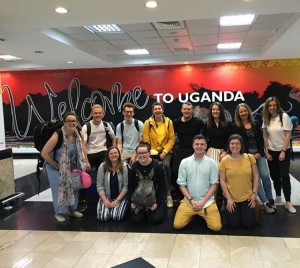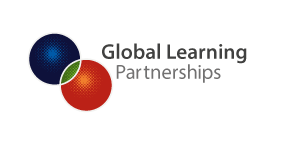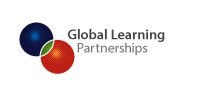
“Children are the same wherever you go. Children need to have their basic needs met and need love and nurture. Children are curious and have infectious smiles. Children have a desire to be sociable and play. I spoke to over 200 parents at a parents’ evening with Emmanuel, my school-based mentor. I found that very powerful as whether a parent in Rwanda or in Scotland, they are facing some similar challenges.”
Emma Moore, GLP 2018
Going to Uganda and Rwanda?
If you have a British, Canadian, Australian, American, or EU passport it must be valid for six months from the date you enter Uganda or Rwanda. This means if you are going for the month of July, your passport will need to be valid until at least January the following year.
If you still have time there are many ways you can fundraise. Have a look at our fundraising page for lots of ideas. If you feel a discussion with your GLP representative or one of our alumni would be useful, get in touch.
The main thing to make sure you’re doing is building enthusiasm within your classroom and around the school. Make sure everyone knows where you are going so they can be excited for you and ask you lots of questions when you return. Perhaps ask them what they want to know about and then you can tell them when you return.
GLP Alumni: “I included greeting of the day – for a week, saying hello in five different languages (including Kinyarwanda). I also got children to mark on a map where they or their parents were from. Encouraging pupils to come to school for one day in their national dress, or the colours of the Rwandan flag. One of my classes researched endangered animals and raised money to sponsor a mountain gorilla, and another group wrote newspaper style articles about preventing infectious diseases in other countries. My first year class made a booklet about life in Scotland for me to take with me.”
GLP Alumni: “Make your pupils aware and build up interest and enthusiasm with them through assemblies and lesson as much as you can. I had my pupils involved in the process right from the beginning even in the interview process. This made the integration of Global Citizenship easier on my return and they were not as confused when they turned up to Design and Technology and we started working on African prints.”
Yes, our in-country partners, team leads and a GLP representative will provide you with in-country support whilst you are on placement
GLP Alumni: “IEE met us and introduced use to some Rwandan ways and history. They gave use a guided tour of the genocide memorial. They explained a little about the education system. At the school placement they worked with me to deliver CPD, and develop resources. On a personal level, they were very caring and attentive to ensure my time was as welcoming as it could be.”
GLP Alumni: “The best supports while you are in Rwanda are the teachers you are travelling with. As you progress along the programme The Wood Foundation give you a wide variety of opportunities to build up relationships with the group you are travelling with. It wasn’t until I arrived at the airport to leave I realised how much of a special bond we all shared and I knew we would be able to go through this experience as a group.”
Some of our teachers have taken some of their own food with them, but you’re not going to be able to pack enough food for a month. There is a wide range of food available, and it’s all part of the experience. From experience the diet can be as bland or as varied as you would like. You will be exposed to some of the more familiar ingredients whilst on pre-departure training. Participants with food allergies should make this known upon accepting a place on GLP.
GLP Alumni: “The only way you would struggle is if you don’t like vegetables. You cook the food, it is basic and plain. Also pack a few home comforts like Super Noodles or Dried Powder soup to add some flavour to your meal. Don’t forget biscuits for those days when you need a pick me up.”
GLP Alumni: “I cooked my own food at the school placement. It was basic and food supplies were ample for these basics, but very limited otherwise. The local diet is mainly potatoes in all their forms, rice, spaghetti, beans (like boiled kidney bean) avocados and very small quantities of meat.”
You should pack your hold luggage within the limit as suggested by the airline (although this should not be treated as a target) and take a bag as hand luggage with essentials (e.g. passport, phone, money etc.). You should try and travel as light as you can as you will need to transport your luggage once in-country. Participants always return from placement stating that they should have taken less luggage. Listen to them, pack light.
Ugandans and Rwandans take a lot of pride in their appearance, visitors should try to look as clean and neat as possible. In the main cities (Kigali and Kampala) women and men will generally wear western style fashions. However, in rural areas, clothing tends to be more conservative.
Women should be mindful of skirt length with below the knee being preferred. In Rwanda, capri or full trousers are acceptable. In Uganda, longer skirts and dress lengths are preferred. In Rwanda and Uganda, tops should be modest – avoid low cut, cropped and backless tops.
Men do not wear shorts in a work environment. As far as possible, you should dress as you would for school in Scotland; lightweight trousers, shirts and smart shoes are acceptable.
GLP Alumni: “Cool and loose fitting. Be respectful at all times, capped sleeves are best for females. The weather in my community was dry and between 23-28 degrees C. Dress style is conservative. I wore a knee length dress to work and long trousers and t-shirts at the weekend.”
We encourage TALULAR (Teaching And Learning Using Locally Available Resources) and utilising the resources and books that support the curriculum within your host community. Whilst it is tempting to bring teaching and learning aids, we prefer you bring your imagination and your skills. On GLP, you are both the student and the resource.
In Rwanda they use Rwandan Francs however, this is a closed currency meaning you can only buy the currency once you are in Rwanda and you should try to spend it before you leave. Cash machines are widely available in Kigali and you can exchange £Sterling (English only) or $USD in a local Forex. Visa is the credit card of choice but hotels and restaurants do accept Mastercard.
In Uganda they use Ugandan Shillings however, the $USD is the note of choice. Where possible, use Ugandan Shillings within small communities. Cash can be obtained from cash machines in Kampala or converted at a Forex. Credit cards are widely accepted with Visa and Mastercard being the preferred options. Do not bring travellers cheques.
This depends entirely on where you are based and sometimes you will have electricity but still have power cuts. If you are living in a community or compound with no electricity, this will be shared with you in advance of your placement.
GLP Alumni: “There is electricity but it’s not always available, ‘be prepared’ is the best moto when dealing with electricity. In most places there will be a supply of electricity, however in some smaller rural areas electricity may be intermittent. Schools operate with solar power.”
Yes, you will be given a local sim card to keep in touch with your cohort, our local partners and your GLP representative. You may wish to purchase an old phone there or bring your smart phone. If you decide to do this, ensure your mobile phone provider unlocks your sim. Apps such as WhatsApp can be used through the wireless network to contact friends and family back home while keeping costs down.
There are a number of measures you can take to make sure you are taking care of your hygiene from solar showers, to hand wipes, hand washing and water purification methods. There are also other precautions to take, like being careful about buying food that has been kept warm for an unknown period of time and being careful when sharing food – e.g try and avoid sharing a bag of crisps where numerous hands will be going in and out. You will be informed about all of these at your training, if you want to know more, please contact us.

